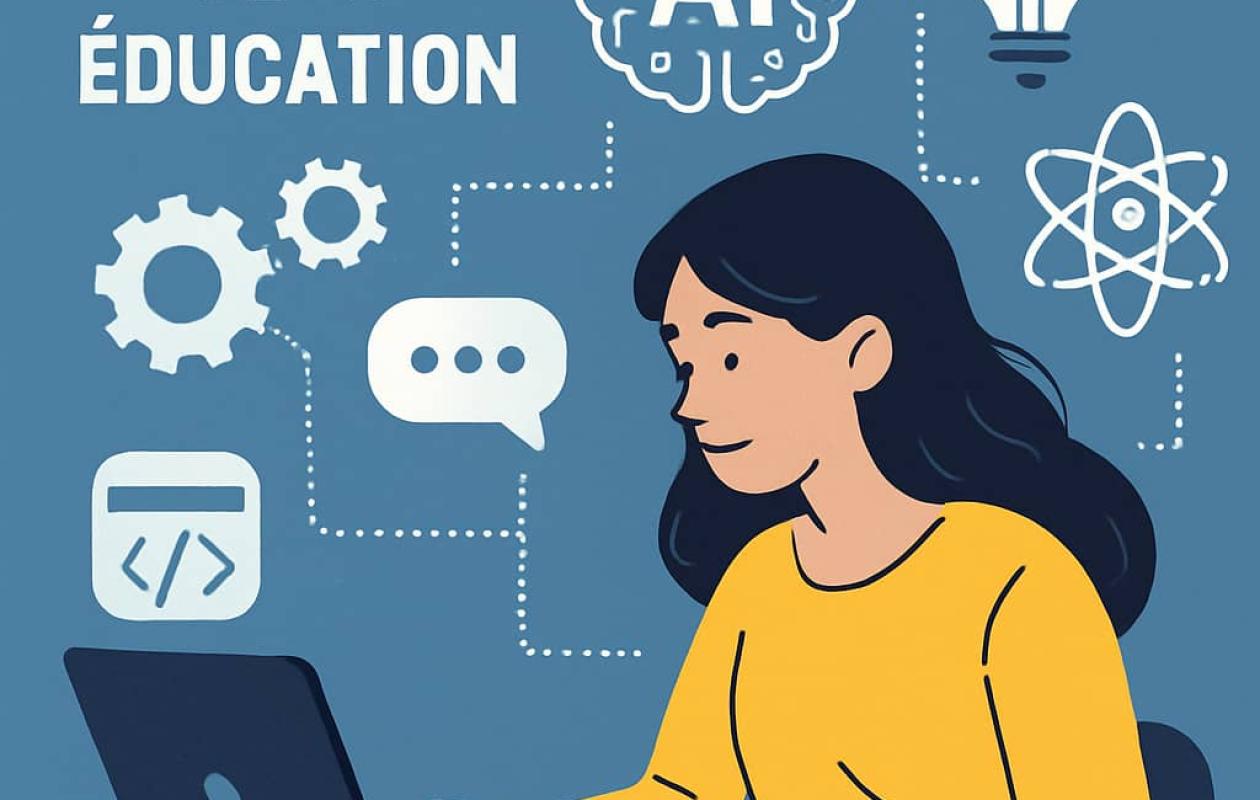
L'école à l'heure de l'intelligence artificielle : révolutionner nos programmes éducatifs
Imagine: It's 2025. Artificial intelligence instantly translates all languages, generates creative content in seconds, and analyzes millions of data points in real time. Yet our schools teach as if they were in the last century. This dissonance is no longer sustainable.
A frozen institution facing a changing world
Our education systems suffer from absurd rigidity. While the professional world is evolving at breakneck speed, school curricula remain unchanged for years. We are still training young people for declining professions, without preparing them for emerging jobs.
This reality challenges me daily as a computer engineer and e-learning expert. How many students enter the job market with skills that are already obsolete? How much talent is wasted by a system that prioritizes memorization over creativity, and restitution over innovation?
AI: threat or lever of transformation?
When it comes to artificial intelligence, there are two opposing positions: the fear of the unknown or the opportunity to fundamentally rethink education. My choice is clear: the second path.
AI should be seen not as a rival to human intelligence, but as a partner revolutionizing learning. It can:
- Anticipate future skills by analyzing market trends
- Personalize teaching according to the pace of each learner
- Dynamically integrate emerging knowledge into curricula
In the age of AI, learning content remains essential, but the methods and purposes of this learning become decisive.
Four pillars for the school of the future
The necessary educational overhaul is based on four foundations:
1. Meta-cognitive skills
Learning to learn with AI and cultivating adaptability as a major asset.
2. Advanced digital mastery
Go beyond basic tool usage to understand data, master creative programming, and understand cybersecurity—with rigorous ethics.
3. Irreplaceable human skills
Developing empathy, creativity, critical thinking and emotional intelligence: our distinctive advantage over machines.
4. Culture of the scientific approach
Knowing how to validate sources, experiment methodically and think critically in a world saturated with fake news.
The imperative to act
This transformation requires:
- Political courage to overcome resistance
- Educational audacity to reinvent methods
- Close collaboration between teachers, researchers, students, businesses and civil society
Concrete priorities:
- Massively train teachers in new teaching methods
- Guarantee fair access to digital tools
- Adopt agile regulatory frameworks for rapid program updates
Towards an evolving curriculum
Revising curricula in the age of AI isn't just about adding computer science courses. It's about building a living curriculum:
- Scalable and interdisciplinary
- Human-centered
- Transmitting fundamental knowledge while preparing for future challenges
Our goal: to train not executors, but autonomous, critical and adaptable citizens, capable of navigating with discernment in the complexity of the modern world.
Artificial intelligence offers us a historic opportunity to reconcile education with the real needs of society. Will you seize it? The future of our children depends on it.
Pape Modou Fall
Computer Engineer
Holder of an International Master's degree in e-learning
Commentaires (7)
On marche sur la tête.
1. Une révolution mondiale incontournable
L’IA n’est pas une mode. Elle est déjà utilisée dans l’éducation en Europe, en Asie, aux États-Unis. Ignorer ce mouvement, c’est isoler nos élèves du monde.
2. Préparer les emplois du futur
Plus de 60 % des métiers de demain n’existent pas encore. L’IA sera au cœur de presque tous. Former dès aujourd’hui, c’est anticiper.
3. Renforcer l’équité
Avec des outils bien conçus, l’IA peut aider les élèves en difficulté, adapter le rythme d’apprentissage et réduire les inégalités scolaires.
4. Soutenir les enseignants
L’IA ne remplace pas l’enseignant : elle automatise certaines tâches (corrections, ressources) pour lui permettre de se concentrer sur la pédagogie humaine.
5. Stimuler la créativité
Au lieu d’étouffer l’imagination, l’IA peut l’amplifier : création de projets, exploration scientifique, apprentissage collaboratif.
6. Lutter contre l’échec scolaire
Grâce à l’analyse des progrès, l’IA identifie plus tôt les lacunes et propose des remédiations personnalisées.
7. Développer l’esprit critique
Confronter les élèves aux outils IA, c’est les obliger à vérifier les sources, distinguer le vrai du faux et éviter les infox.
8. Former des citoyens numériques
Nos jeunes utilisent déjà WhatsApp, TikTok, YouTube… Il est temps de leur apprendre à utiliser les technologies intelligemment et de façon responsable.
9. Donner une place à l’Afrique
L’Afrique a l’opportunité de ne pas rater le train technologique. En intégrant l’IA à l’école, le Sénégal peut devenir un modèle régional.
10. Construire un curriculum vivant
L’IA oblige à moderniser les programmes : moins de mémorisation mécanique, plus de compétences durables (analyse, créativité, adaptabilité).
Participer à la Discussion
Règles de la communauté :
💡 Astuce : Utilisez des emojis depuis votre téléphone ou le module emoji ci-dessous. Cliquez sur GIF pour ajouter un GIF animé. Collez un lien X/Twitter, TikTok ou Instagram pour l'afficher automatiquement.